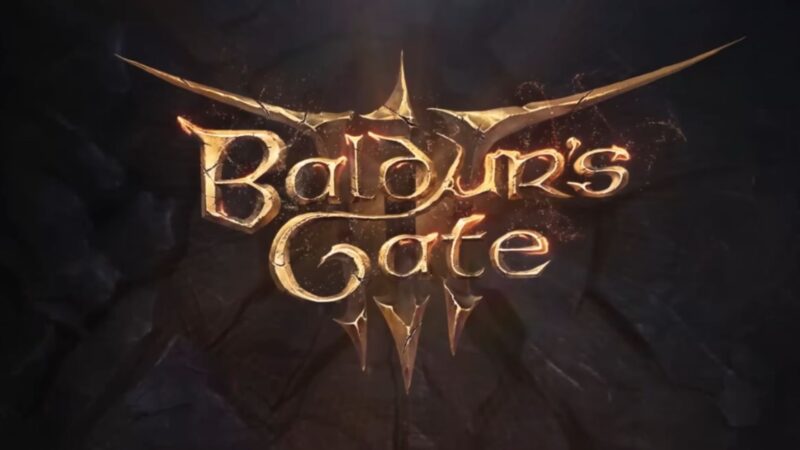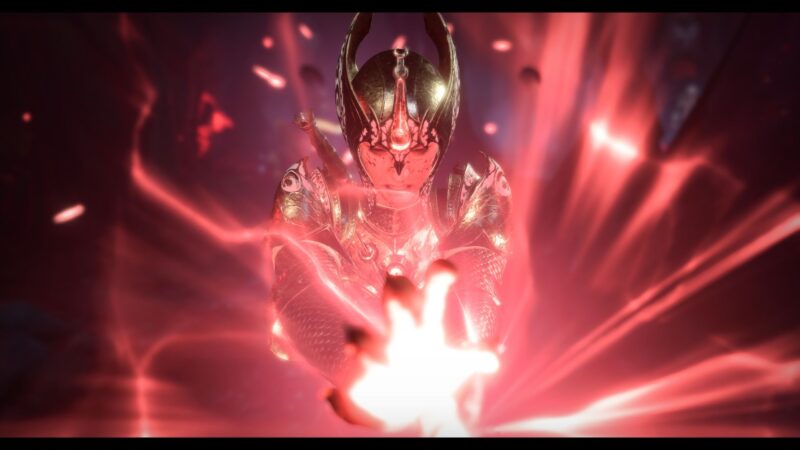If you’re coming to Baldur’s Gate 3 without a lot of Dungeons & Dragons knowledge, our 20-Sided Dice (D20) Guide will give you a general understanding of how all those dice rolls work.
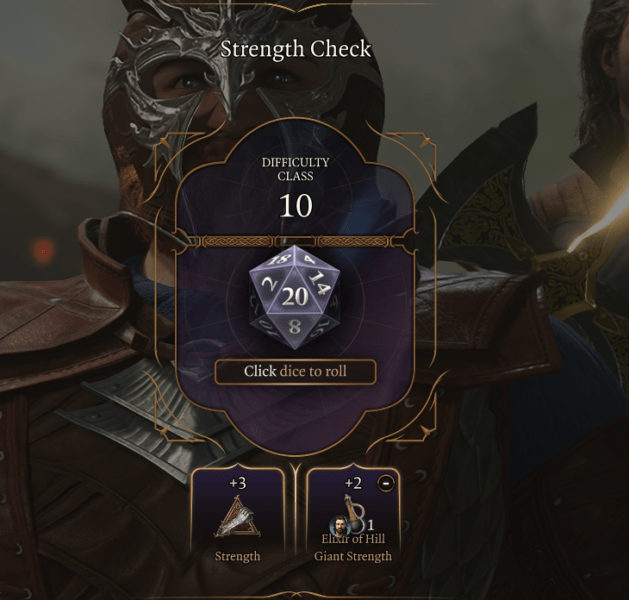
Gameplay mechanics and combat in Baldur’s Gate 3 are based upon the 5th Edition rulebook of the popular tabletop RPG Dungeons & Dragons. For players interested in BG3 coming from a more general RPG background, the vast array of point distribution, rules, and dice rolls can be incredibly confusing when first starting out. In this Baldur’s Gate 3: 20-Sided Dice (D20) Guide we’re going to go over the basics
How Dice Rolls Work in Baldur’s Gate 3
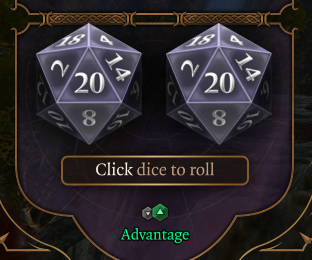
In Baldur’s Gate 3, a 20-sided die (d20) is used to determine the outcome of many actions including (but not limited to):
- Attacking an enemy
- Picking a lock
- Pickpocketing a target
- Persuading or Intimidating an NPC in dialogue
- Discovering hidden items in the environment
- Discovering and Disarming traps
In the course of your journey through Baldur’s Gate 3 you’ll run into all of these scenarios. Keep in mind that there is no way to build a single character to excel in all of these areas of expertise. Your character’s Ability Score will play a large roll (in combination with their class and skills) in determining what scenarios it would be most advantageous to use them in.
However, just because you want to play a Barbarian who can Intimidate without hardly trying, doesn’t mean you’re sacrificing the ability to pick locks or cast spells. Part of the adventure in Baldur’s Gate 3 is recruiting companions who can join your party. All of these individuals will have their own backgrounds and classes. Therefore ensuring that you can ideally have someone in your party who can balance out the skills you may lack.
The basic mechanic of a dice roll in Baldur’s Gate 3 is simple:
- When the game prompts you, you click to roll the die
- If the result is equal to or higher than a target number, you succeed.
- If the result is lower than the target number, you fail.
The target number is automatically determined by the game, based on your character’s ability score and any modifiers that apply. Dice rolls also occur during combat in Baldur’s Gate 3, but the game will process those automatically, rather than having you manually click each occurrence.
Baldur’s Gate 3 Dice Rolls in Practice
For example, let’s say you’re trying to pick a lock. The target number for this task is 15. If you have a Dexterity score of 14, you’ll get a +2 modifier to your roll. So, if you roll a 13 or higher, you’ll succeed.
If you roll a natural 20 on a d20, this is called a critical hit. This means that you automatically succeed, and if this happens when you’re in combat you usually do extra damage.
On the other hand, if you roll a natural 1 on a d20, this is called a critical failure. This means that you automatically fail, and if this happens when you’re in combat then you may suffer some additional negative consequences.
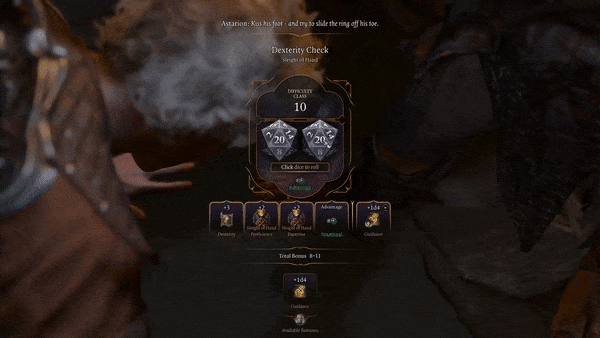
Of course, there are other factors that can affect the outcome of a d20 roll. As you can see in the image above, companion Astarion has triggered a Dexterity check. Now Astarion is a Rogue and has access to the Sleight of Hand skill, both of which give him additional bonus modifiers on this particular roll. You can see all of the modifiers listed underneath – they are added to the resulting roll of the dice. This means that sometimes, even if you technically get a dice roll that results in a lower number than the target, the bonus modifiers could be added to it and then produce a successful roll.
Conclusion
Overall, the d20 is a versatile mechanic that allows for a lot of flexibility in Baldur’s Gate 3. It can seem like an overwhelmingly complex system to learn, but with a solid understanding of the basics and a bit of practice it can be very rewarding to master.
Here are some additional things to keep in mind about d20 rolls in Baldur’s Gate 3:
- The target number for a d20 roll can vary depending on the difficulty of the task.
- You can add modifiers to your d20 roll to increase your chances of success.
- These modifiers can come from your ability scores, your equipment, or spells and abilities.
- You can also subtract modifiers from your d20 roll to decrease your chances of success.
- These modifiers can come from disadvantages, penalties, or spells and abilities.
- If you roll a natural 20 on a d20, this is always a critical hit.
- If you roll a natural 1 on a d20, this is always a critical failure.
Looking for more Baldur’s Gate 3?
Thank you for reading our Baldur’s Gate 3: 20-Sided Dice (D20) Guide. We provide the latest news and create guides for Baldur’s Gate 3. Additionally, check out our website, watch Deltia play games on Twitch, or visit his YouTube channel!
 Reddit
Reddit
 Email
Email
